
In response to the New Year's Eve attacks that shook the city of Cologne in Germany, a Syrian living there has rallied together refugees to speak out against sexual assault.
After a long journey from Homs in Syria, Sakher Al-Mohamad knew he had found the right home when he arrived in northwest city of Cologne last August. For months, the 27-year-old — who was once a reporter in Syria, but now teaches — bounced from city to city within Germany, but as he felt "accepted" in Cologne, he settled.
But after a mass of women were sexually assaulted and attacked outside the city cathedral on New Year's Eve by perpetrators the police say were migrants, anti-refugee sentiment was ignited across the country.
For Sakher and his Syrian friends in Cologne, they feared the worst.
"We don't want to find a new war here in Germany," Sakher told BuzzFeed News. "Most people in this city have accepted the refugees, refugees like me. I'm very sad it happened here.
"We want to tell the German people how we feel — sad and ashamed of the attackers' actions. If we knew who they were, we would tell the police because they are dangerous. Not only for women, but for all of us."
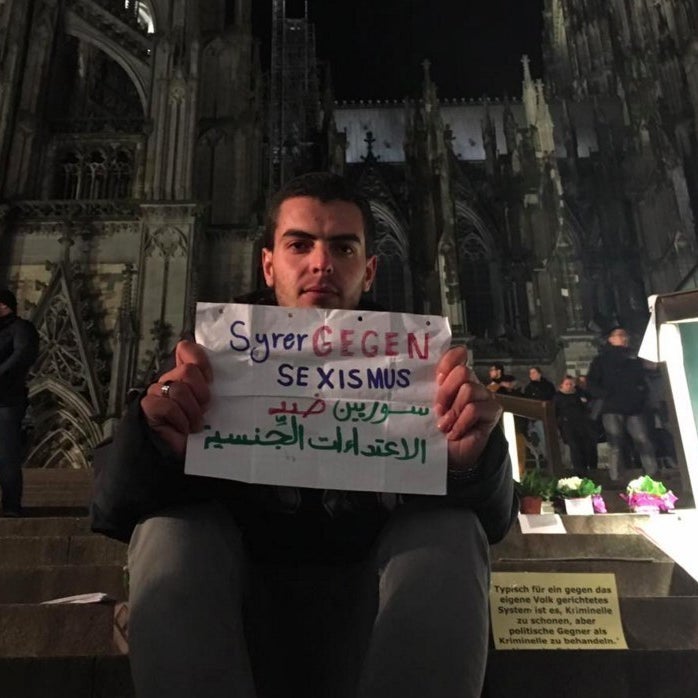
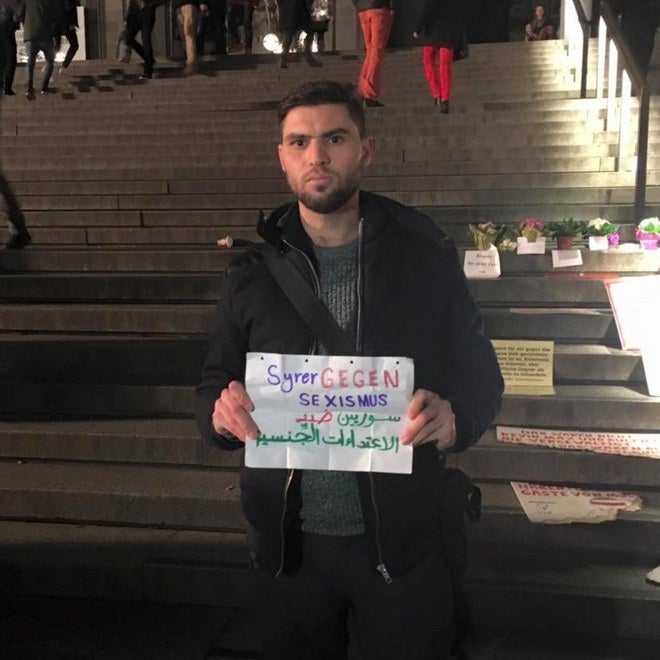
Sakher decided to put a call out to other Syrian refugees in the city, asking them to take photos of themselves holding signs with messages against sexual assault, and to share them on Facebook.
Soon, messages of support and photos from men and women taking part in his idea flooded his Facebook page, with many using the hashtag #SyriansAgainstSexism written in German and Arabic. Sakher was hopeful his actions would help Germans see their side of the story.
"I'm trying to give the right picture of my community," Sakher said. "Some people told me, 'You don't need to apologize, this was not you.' But when I find a problem, I have to say and do something — it's inside of me."
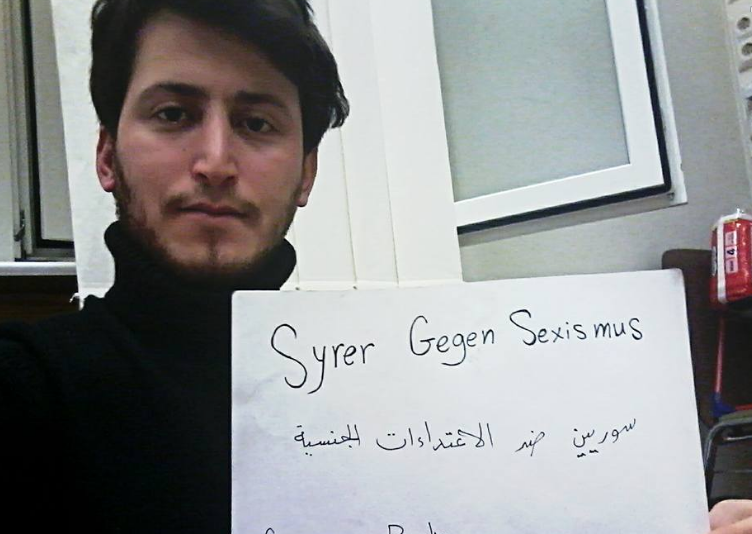
On Saturday afternoon, Sakher and his supporters plan to take their signs and protest outside the city cathedral.
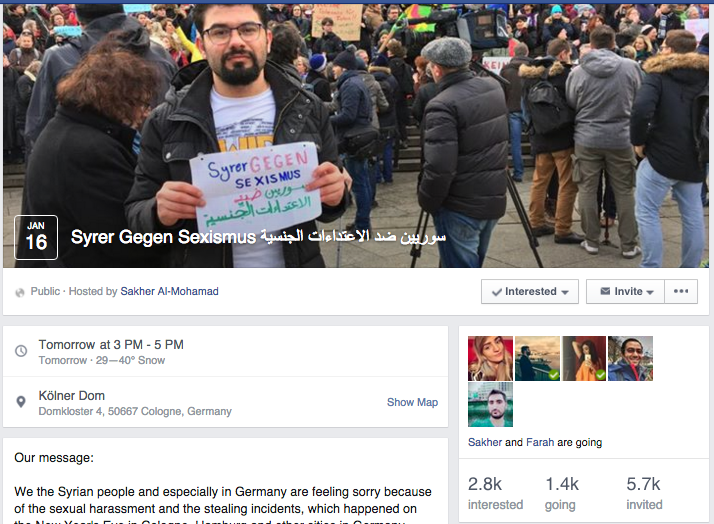
On the Facebook event — which he says was open invitation "for all Syrian, German, and Arab people" — Sakher wrote:
"We the Syrian people, and especially those of us in Germany, are feeling sorry because of the sexual harassment and the stealing incidents, which happened on the New Year's Eve in Cologne, Hamburg and other cities in Germany.
We are asking the German authorities to punish the attackers the hardest penalties. Furthermore, we are asking the authorities to exclude them out of Germany, and we confirm that this criminal behaving are not expressing our mentality and culture.
We as Syrian people came to Germany to find peace and calm life, over that to secure our children and families from the war atrocities which are killing us by hunger, forced displacement and bombing.
What happened on the New Year's Eve against the women in all over Germany gave us more pain."

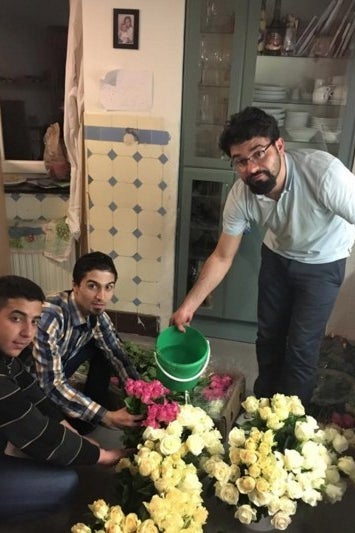



Sakher hasn't had to rally his community to speak out against violence against women before, but felt the need to do so in Germany.
He said that men would protect women and girls at home in Syria, and their culture would not accept sexual assault.
"If people were violent against women in Syria, the community would refuse it. If anyone saw a woman get hurt, or get attacked, people would call them a criminal, and go to police. No one can do those things to women, and no one in Syria would think it was right."

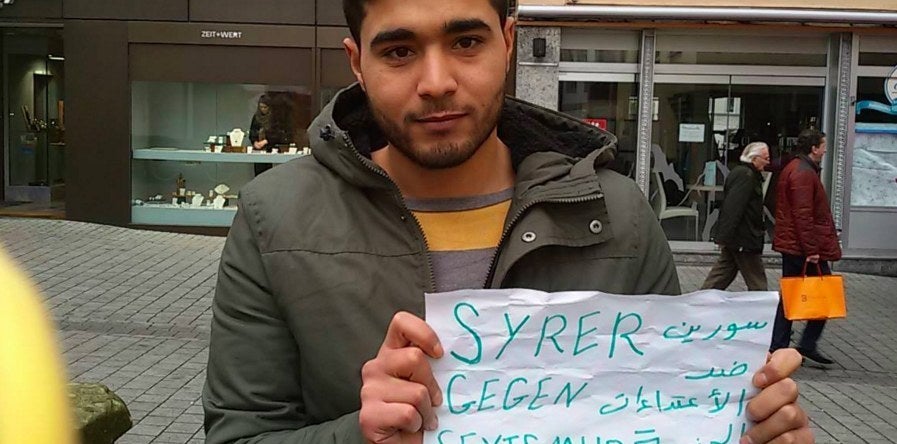
Sakher stressed the attackers on New Year's Eve do not live by the same values as the majority of the refugees in Germany, and even for the refugees living in camps in Cologne, they were a cause of concern.
"They made problems every night, and would steal things from this camp. We couldn't leave our things out — someone always had to be in this room, or someone else will break a window or door, and steal our things. They'd harass the women and girls there, they couldn't be on their own."
"Sometimes I'd speak to them," he added. "I asked them, 'Why do you do this? Why do you come to a country which has given us a place to live, given us food, and given us our lives back, and cause problems?'"
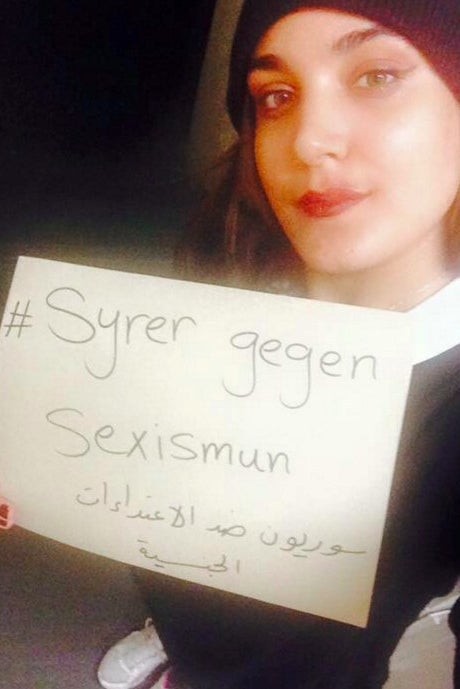
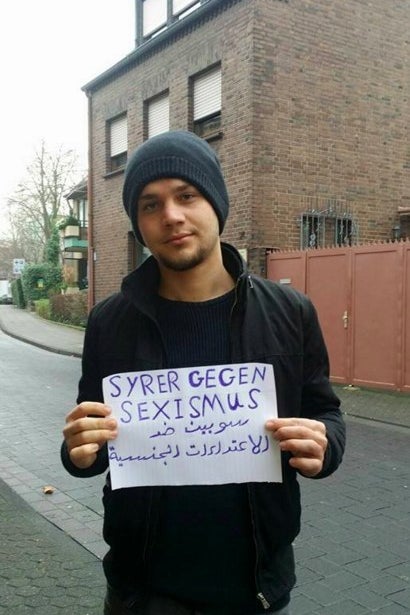
Syrian women have also joined the wave of people taking a stand against sexual assault. Many, of course, wish they didn't have to apologise in the first place.
One of those women, who asked BuzzFeed not to use her name, was "pretty active" in the Syrian revolution, and now works as a piano teacher in Germany.
"It's frustrating, having to convince people we're not criminals. You hear about racism and violence against refugees, and I think: 'Where can I go? Where can I run away to?' It's not healthy to live like thinking like that.
"It's unfair to generalise their actions on the majority of us," she added. "I don't think I've ever met a Syrian refugee that isn't grateful Germany has accepted us; even our own government didn't accept us. I don't want to defend myself over something I didn't do. It's not our fault for what they did."



